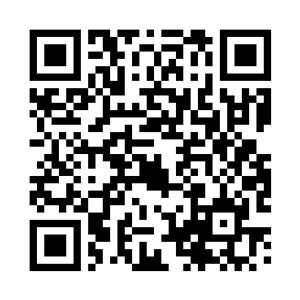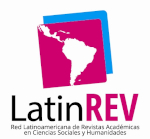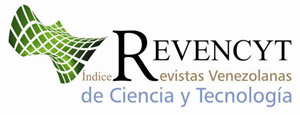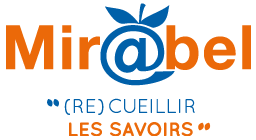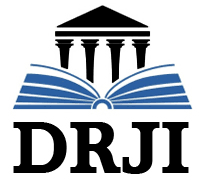Flipped Classroom: revolutionizing university technical education
Keywords:
flipped classroom, university technical education, autonomous learning, educational technologyAbstract
The objective of this essay was to explore the impact of the flipped classroom methodology on teaching-learning in university technical education in the face of the challenges and opportunities of the digital era recognized for effective implementation. In this sense, the methodological, technological and pedagogical foundations of the flipped classroom, capacity for autonomous learning, personal and cooperative relationships were developed, following the appropriation of a documentary investigation, with the technique of signing, bibliographic selection and then, analysis of the contents. Some conclusive elements were recognized in student participation as a core aspect, supported by the effective use of digital resources, in addition to the positive impact on motivation and commitment to complete the pursuit of tasks, which contributes to their autonomous learning. However, the effectiveness in the successful implementation of this methodology depends on the independent capacity to learn as active agents of one's own education, the design of the courses, resources, infrastructure geared to communication, interaction, environment, culture, instruction, as pedagogical challenges. From a prospective perspective, this essay envisions the development of skills for the 21st century, focused on autonomous learning, problem solving, effective communication, personalization of learning, active participation by increasing interest and motivation in technical content, from flexibility in delivery, creation of hybrid learning environments, effective use of technological resources, metacognition and the development of learning communities.
Downloads
References
Aidoo, B., Tsyawo, J., Quansah, F., & Boateng, S. K. (2022). Students' learning experiences in a flipped classroom: A case study in Ghana. International Journal of Education and Development using Information and Communication Technology (IJEDICT), 18(1), 67-85.
Awidi, T., & Paynter, M. (2019). The impact of a flipped classroom approach on student learning experience. Computers & Education, 128, 269-283. https://doi.org/10.1016/j.compedu.2018.09.013.
Buhl-Wiggers, J., la Cour, L., Franck, M.S. (2023). Investigating effects of teachers in flipped classroom: a randomized controlled trial study of classroom level heterogeneity. International Journal of Educational Technology in Higher Education, 20, 26. https://doi.org/10.1186/s41239-023-00396-4.
Divjak, B., Rienties, B., Iniesto, F. (2022). Flipped classrooms in higher education during the COVID-19 pandemic: findings and future research recommendations. International Journal of Educational Technology in Higher Education, 9, 9. Https://doi.org/10.1186/s41239-021-00316-4
González Zamar, M. y Abad Segura, E. (2020). El aula invertida: un desafío para la enseñanza universitaria. Virtualidad, Educación y Ciencia, 20 (11), 75-91.
Izadpanah, S. (2022). The impact of flipped teaching on EFL students' academic resilience, self-directed learning, and learners' autonomy. Frontiers in Psychology, 13, 981844. https://doi.org/10.3389/fpsyg.2022.981844.
Johnson, D., Johnson, T y Holubec, E. (1999). El aprendizaje cooperativo en el aula. Buenos Aires: Paidós.
Lag, T., & Saele, R. G. (2019). Does the flipped classroom improve student learning and satisfaction? a systematic review and meta-analysis. AERA Open, 5(3). https://doi.org/10.1177/2332858419870489
Lo, C. (2018). Grounding the flipped classroom approach in the foundations of educational technology. Educational Technology Research and Development, 66(3):793-811. DOI:10.1007/s11423-018-9578-x.
McCollum, B. M., Fleming, C. L., Plotnikoff, K. M., & Skagen, D. N. (2017). Relationships in the flipped classroom. The Canadian Journal for the Scholarship of Teaching and Learning, 8 (3). Disponible: http://ir.lib.uwo.ca/cjsotl_rcacea/vol8/iss3/8
Mercado, E. P., & Escudero, A. (2022). Autonomous learning in the flipped classroom at the new generation school. En: Technologies in Childcare Education to Draw Up Future Inclusive Spaces: Blurring the Present. (pp. 86-96). Thomson Reuters/Aranzadi.
Oogarah-Pratap, B. (2016). Promoting independent learning skills through a flipped classroom approach. En: Third International Conference on Emerging Research Paradigms in Business and Social Science, (pp. 490-499). Dubai.
Rotellar, C., & Cain, J. (2016). Research, perspectives, and recommendations on implementing the flipped classroom. American Journal of Pharmaceutical Education, 80(2), 34. https://doi.org/10.5688/ajpe80234.
Torres, C., Acal, C., El-Homrani, M. (2022). Implementation of the flipped classroom and its longitudinal impact on improving academic performance. Educational Technology Research and Development, 70, 909-929. https://doi.org/10.1007/s11423-022-10095-y.
Zhou, X. (2022). A conceptual review of the effectiveness of flipped learning in vocational learners' cognitive skills and emotional states. Frontiers in Psychology, 13, https://doi.org/10.3389/fpsyg.2022.1039025.
Published
How to Cite
Issue
Section
License

This work is licensed under a Creative Commons Attribution-NonCommercial-ShareAlike 4.0 International License.





